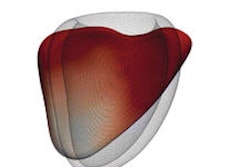Dear AuntMinnie Member,
As we were going to press this morning, we received the sad news that MRI pioneer Sir Peter Mansfield, PhD, has died at the age of 83 in the U.K.
Mansfield was a physicist at the University of Nottingham who, along with Paul Lauterbur, PhD, performed pioneering work on nuclear magnetic resonance -- work that formed the foundation for the development of MRI. Mansfield and Lauterbur received the Nobel Prize in physiology or medicine for their efforts in 2003.
While Mansfield's contributions to MRI are unquestioned, his name and that of Lauterbur have become inextricably linked to Dr. Raymond Damadian, the U.S. physician who also performed early work in MRI development. The Nobel Committee snubbed Dr. Damadian in its award selection, prompting a strong reaction from the U.S. physician that fueled what has been perhaps the longest-running controversy in medical imaging.
Read more about Mansfield's contributions to MRI by clicking here, or visit our MRI Community at mri.auntminnie.com.
CAC scores and heart risk
Researchers and clinicians have become convinced of the usefulness of coronary artery calcium (CAC) scores from CT scans in predicting future heart attack risk. But a new study published in JAMA Cardiology indicates they might be even more useful than we've thought.
Researchers from Vanderbilt University compared CAC scores in more than 3,000 people ages 18 to 30 and then followed the subjects for years to see how the scores correlated with the future incidence of coronary heart disease and death. While those with the highest scores had the greatest risk, even individuals with relatively moderate scores also had an elevated incidence, they found.
Read more about the study by clicking here, or visit our CT Community at ct.auntminnie.com.
Cardiac MRI and machine learning
Finally, be sure to visit our Advanced Visualization Community to learn about a new machine-learning algorithm developed in the U.K. and Singapore that analyzes cardiac MR images to predict which patients with pulmonary hypertension are most likely to survive following treatment. Find out how well it worked by clicking here, or go to av.auntminnie.com.



.fFmgij6Hin.png?auto=compress%2Cformat&fit=crop&h=100&q=70&w=100)




.fFmgij6Hin.png?auto=compress%2Cformat&fit=crop&h=167&q=70&w=250)











